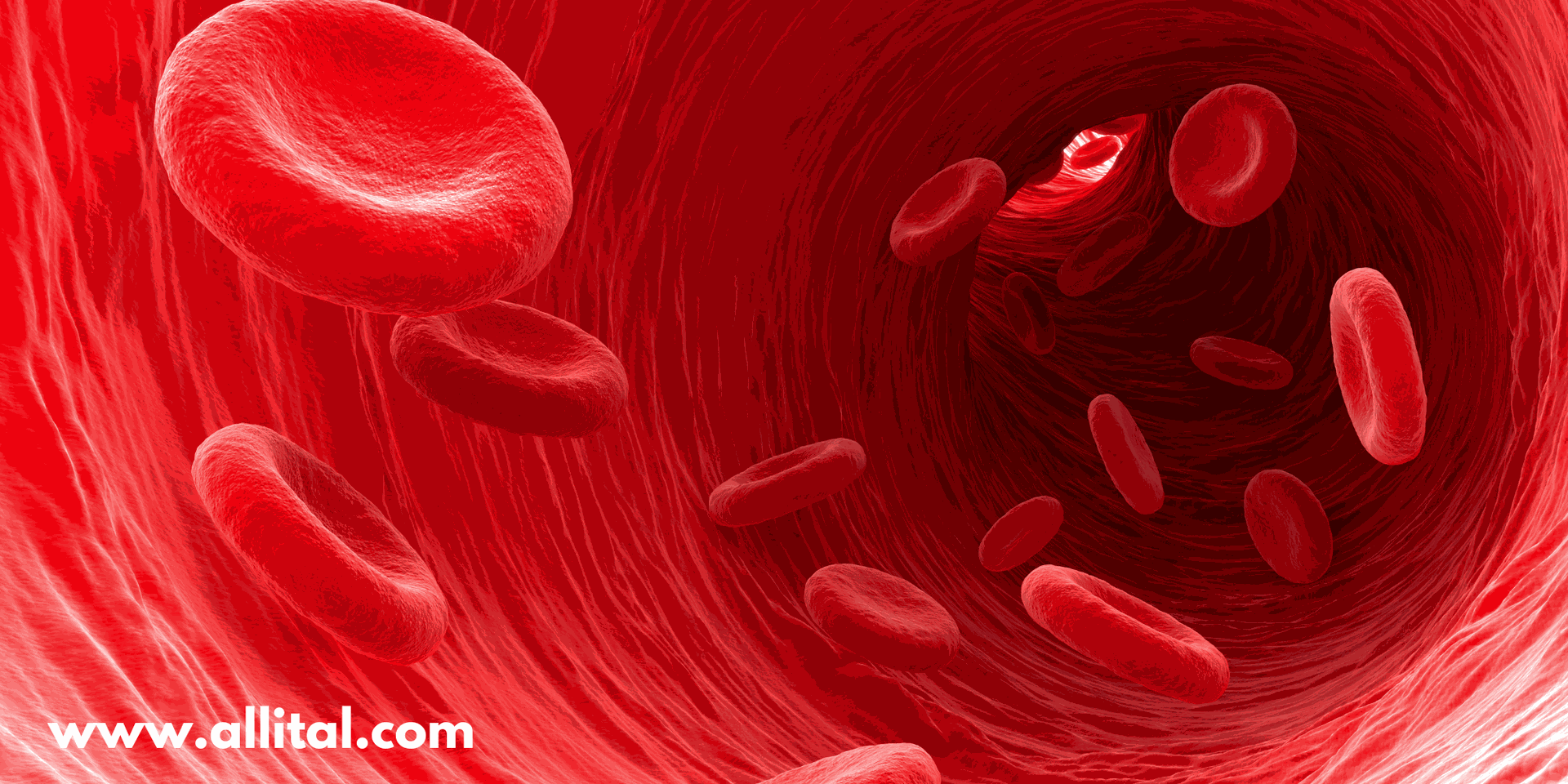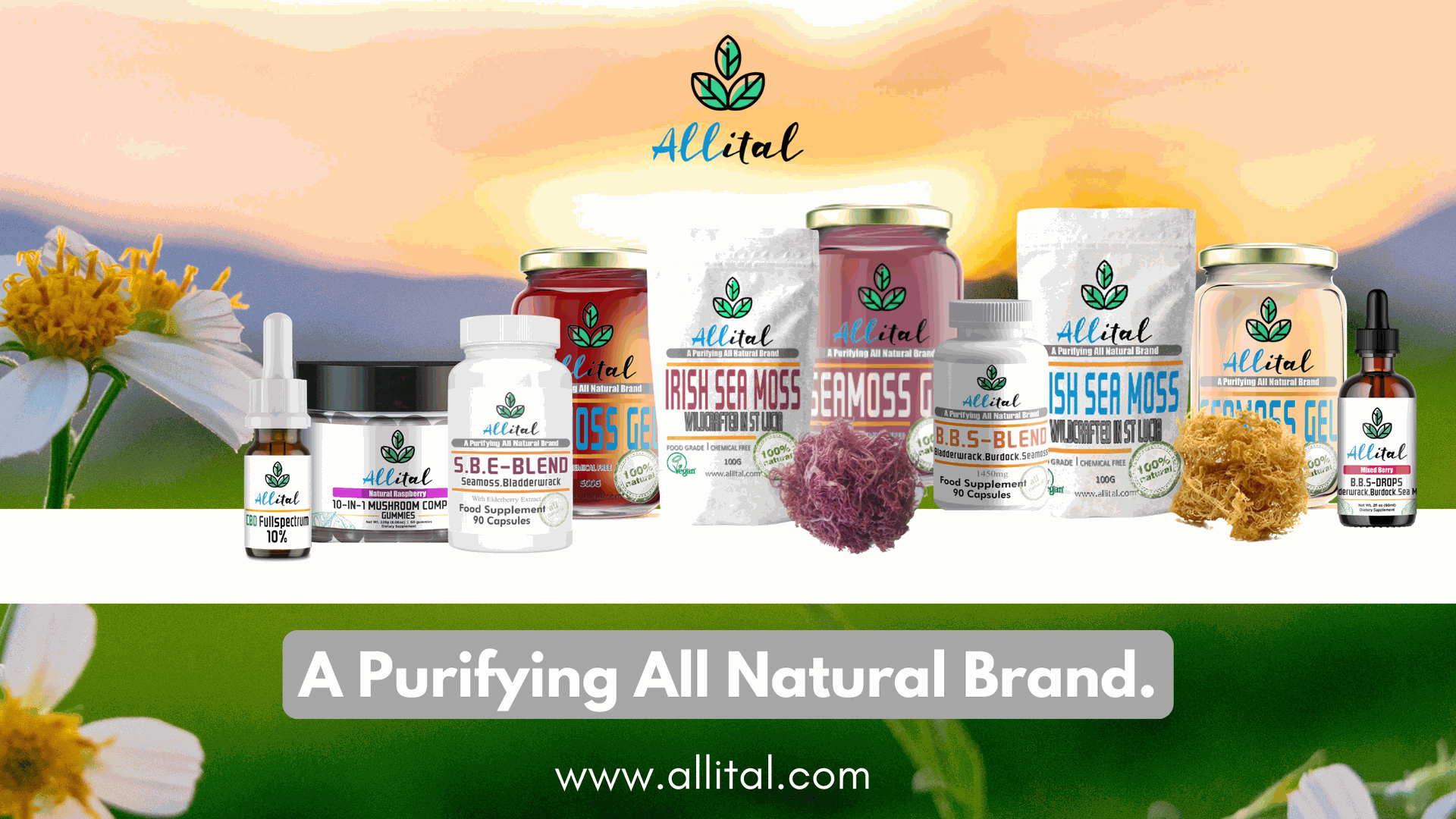In recent years, sea moss has gained popularity as a superfood due to its high nutrient content and potential health benefits. Sea moss, also known as Irish moss, is a type of red algae that grows in the Atlantic shores of the Caribbean islands, Ireland and Africa. This seaweed has been used for centuries in traditional medicine to treat a wide range of ailments, from respiratory issues to digestive problems.
Sea moss Nutrient Content
Sea moss is a rich source of vitamins and minerals, including vitamin A, B-vitamins, vitamin C, calcium, iron, magnesium, and potassium. It is also a good source of iodine, a mineral that is essential for healthy thyroid function. Additionally, sea moss contains antioxidants, which can help protect your cells from damage caused by free radicals.
Minerals Found in Sea Moss
Sea moss is particularly rich in minerals, which are essential for many functions in the body. Some of the minerals found in sea moss include:
Calcium: This mineral is essential for strong bones and teeth, as well as nerve function and muscle contraction.
Iron: Iron is important for the production of red blood cells, which carry oxygen throughout the body.
Magnesium: Magnesium is necessary for many processes in the body, including energy production, muscle function, and the synthesis of DNA and RNA.
Phosphorus: This mineral is important for bone and teeth health, as well as the production of ATP, which is the body's primary energy source.
Potassium: Potassium is essential for proper heart and muscle function, as well as the regulation of blood pressure.
Zinc: Zinc is important for a healthy immune system, wound healing, and the synthesis of DNA and RNA.
Vitamins in Sea Moss
Sea moss is also a good source of vitamins, including:
Vitamin A: This vitamin is important for healthy vision, immune function, and skin health.
Vitamin C: Vitamin C is a powerful antioxidant that is important for immune function and collagen production.
Vitamin E: Vitamin E is an antioxidant that is important for skin health and immune function.
Vitamin K: Vitamin K is essential for blood clotting and bone health.
Antioxidants in Sea Moss
Sea moss is loaded with antioxidants, which are important for protecting the body from damage caused by free radicals. Some of the antioxidants found in sea moss include:
Chlorophyll: Chlorophyll is a powerful antioxidant that is important for detoxification and immune function.
Carotenoids: These antioxidants are important for eye health and immune function.
Flavonoids: Flavonoids are important for reducing inflammation and protecting the body from damage.

Potential Health Benefits
The high nutrient content of sea moss may provide several health benefits. For example, the iodine in sea moss may help support healthy thyroid function, which is important for regulating metabolism and energy production. The vitamin C in sea moss can help boost immune function and support collagen production, which is essential for healthy skin, hair, and nails. The magnesium and calcium in sea moss can help support healthy bones and muscles, while the iron content can help prevent anemia.
Sea moss also contains compounds known as carrageenans, which have been studied for their potential therapeutic uses. For example, carrageenans have been shown to have anti-inflammatory properties, which may help reduce the risk of chronic diseases such as arthritis, diabetes, and heart disease. Additionally, carrageenans may have antiviral properties, which could make them a useful tool in the fight against viral infections.

Ways to Incorporate Sea Moss into Your Diet
There are several ways to incorporate sea moss into your diet. One easy way is to add it to smoothies or juices. Simply soak a small amount of sea moss in water for several hours, then blend it into your favorite beverage. Sea moss can also be used as a thickening agent in soups, stews, and sauces, or added to baked goods like bread and muffins.
FAQs: Frequently Asked Questions
1. How do you consume sea moss?
Sea moss can be consumed in a variety of ways, including adding it to smoothies, soups, or stews. It can also be used as a thickening agent in desserts and other recipes.
2. Can sea moss help to prevent cancer?
While more research is needed, some studies have shown that the antioxidants found in sea moss may have anti-cancer properties.
3. Is sea moss safe for everyone to consume?
While sea moss is generally considered safe for most people, it may not be suitable for individuals who are allergic to seafood or iodine. It is always best to check with a healthcare professional before adding sea moss to your diet.
4. Can sea moss help with weight loss?
While sea moss is low in calories and high in fiber, it is important to note that weight loss is ultimately determined by a combination of factors, including diet and exercise. Incorporating sea moss into a balanced diet and active lifestyle may be beneficial, but it is not a magic solution for weight loss.
5. How much sea moss should I consume?
When it comes to consuming sea moss, there is no one-size-fits-all answer as it can vary depending on individual needs and preferences. Some people prefer to consume it in supplement form, while others prefer to add it to smoothies or other dishes. It is recommended to start with a small amount and gradually increase the dosage as tolerated.
6. How should I store sea moss?
In terms of storage, sea moss should be stored in a cool, dry place in an airtight container. It can also be refrigerated or frozen to extend its shelf life. It is important to properly clean and prepare sea moss before consuming it to remove any debris or impurities.
Conclusion
Sea moss is a nutrient-rich seaweed with several potential health benefits. Incorporating sea moss into your diet may help support healthy thyroid function, boost immune function, and reduce the risk of chronic diseases. With its versatile uses and health benefits, sea moss is a valuable addition to any diet.
Sources
1. Sharmin Suraiya et al., “Immunity boosting roles of biofunctional compounds available in aquafoods: A review”, (2022) https://www.sciencedirect.com/science/article/pii/S2405844022008350
2. Barbara Borsani et al., “The Role of Carrageenan in Inflammatory Bowel Diseases and Allergic Reactions: Where Do We Stand?” (2021) https://www.ncbi.nlm.nih.gov/pmc/articles/PMC8539934/
3. Natalya N. Besednova et al., “Extracts and Marine Algae Polysaccharides in Therapy and Prevention of Inflammatory Diseases of the Intestine” (2020), https://www.ncbi.nlm.nih.gov/pmc/articles/PMC7345783/
4. Ji Hye Kim et al., “Beneficial Effects of Marine Algae-Derived Carbohydrates for Skin Health” (2018), https://www.ncbi.nlm.nih.gov/pmc/articles/PMC6266229/
5. Valentina Jesumani et al., “Potential Use of Seaweed Bioactive Compounds in Skincare-A Review,” Marine drugs (2019), https://www.ncbi.nlm.nih.gov/pmc/articles/PMC6950024/.
6. Peter P.A. Smyth, “Iodine, Seaweed, and the Thyroid” (2021), https://www.ncbi.nlm.nih.gov/pmc/articles/PMC8077470/
7. Adriana P. Januário et al., “Red Seaweed-Derived Compounds as a Potential New Approach for Acne Vulgaris Care” (2021) https://pubmed.ncbi.nlm.nih.gov/34834345/
8. Zhiwei Liu et al., “Anti-Cancer Activity of Porphyran and Carrageenan from Red Seaweeds”, (2019) https://www.ncbi.nlm.nih.gov/pmc/articles/PMC6930528/
9. Rayapu et al., Marine Algae as a Potential Source for Anti-diabetic Compounds - A Brief Review”, (2021) https://www.ingentaconnect.com/content/ben/cpd/2021/00000027/00000006/art00004
FDA DISCLAIMER:
The statements made within this website have not been evaluated by the Food and Drug Administration. These statements and the products of this company are not intended to diagnose, treat, cure or prevent any disease.




Sea moss Nutrients: Exploring the Health Benefits